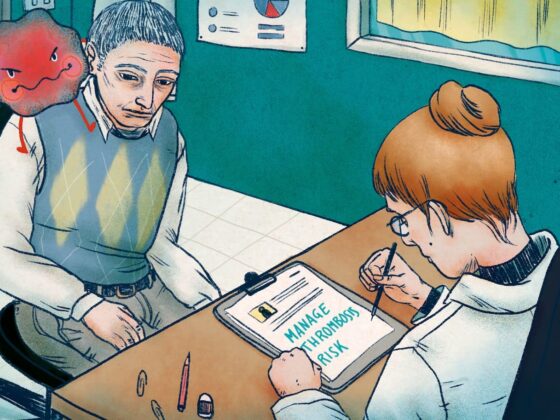A review of trials of immunotherapy agents revealed a ‘considerable gap’ in the use of patient reported outcomes (PROs), reports a recent study. The data analysis study found PROs were included in less than half of the 44 immunotherapy trials analysed, identifying the need for increased efforts to maximize the clinical utility of such data (Houssein S et al. J Natl Cancer Inst, 2020).
Between 2017 and 2019, the number of immunotherapies (immune checkpoint inhibitors and CAR T-cell therapies) in active development increased by 91%, from 2,020 to 3,876. PROs are self-reported questionnaires completed by patients without interpretation by clinicians, which enable patients to express their perceptions of the value of treatment regimens and the impact of a drug to be measured beyond survival benefits. Such data are considered fundamental to ensuring accurate reporting of adverse events, with several studies suggesting adverse events are best reported by patients as opposed to physicians.
The aim of the study by Jad Chahoud (Lee Moffit Cancer Center, FL) and colleagues was to provide ‘an objective review’ of the ‘strengths and limitations’ of PRO data in studies of immunotherapy agents approved by the FDA between January 2011 and December 2018. For each drug, the team identified the pivotal clinical trials used for FDA approval, and reviewed trial manuscripts (both primary and secondary) reporting PROs. To explore randomised clinical trials (RCTs), the investigators developed the 24 point PRO Endpoints Analysis Score (PROEAS) based on 24 criteria derived from recommendations of the Setting International Standards in Analyzing Patient-Reported Outcomes and Quality of Life Endpoints Data (SISAQOL) Consortium. PROEAS was only applicable to RCTs, it could not be used to provide an objective scale for single-arm trials.
Overall, the investigators identified 42 immunotherapy drug approvals that had taken place between 2011 and 2018, involving 44 publications, of which 23 (52.3%) were RCTs and 21 (47.4%) single-arm trials.
The results of the systematic review showed:
- PROs were published for 47.7% (21 out of 44) of the trial publications.
- 11.4% of the trial publications (5 of 44) only published preliminary PRO results in the primary clinical outcomes manuscript.
- Median time between primary clinical outcome publications and the corresponding secondary PRO publication was 19 months (IQR=9−29).
- For the RCTs, 14 out of 23 (60.9%) published PRO data including 13 (56.5%) where it was included in a secondary dedicated manuscript.
- Although the RCTs were published before the SISAQOL recommendations, none of the 14 RCTs publishing PRO data met the standard of all these SISAQOL recommendations, and 7 of the RCTs (half) scored <13 points on the 24-point PROEAS. The mean PROEAS score was 12.71 (range 5−17; SD=3.71).
“The fast pace at which immunotherapy is evolving comes at the cost of suboptimal reporting and delays in publishing PROs,” write the authors. “Much is still unknown about the PROs of immunotherapy drugs that have received FDA approval, as PRO data are missing for most trials. A standardized design and methodology as well as timely reporting of PROs are crucial for anticipating the real-world patient experience associated with these drugs.”
The authors comment that none of the studies used an immunotherapy-specific PRO tool, which is important since traditional PRO instruments designed for chemotherapy may fail to detect changes specific to immunotherapy drugs.
However, there is cause for optimism. At the end of the discussion the authors note that multiple new PRO tools are emerging with the potential to optimise the feasibility and usability of PROs in immunotherapy studies. Examples include the PRO-CTCAE, which provides a flexible approach across a broad range of cancer therapies; and the FACTGP5, consisting of one question addressing the extent to which patients are bothered by treatment side effects. “These tools have the potential to maximize the relevance of PRO data in clinical decision making and could offer trialists a valuable addition in the design of future immunotherapy trials,” write the authors, adding that the next step is to move to proper implementation of these tools to maximize the value of PRO data.
Bettina Ryll, founder of the Melanoma Patient Network Europe, the first condition for which checkpoint inhibitors were approved, says, “PROs are immensely valuable because they elicit information from the primary data source, the patient, thereby avoiding the biases that reporting by proxies introduces. This systematic review accurately depicts the struggles that are being experienced establishing PROs for new therapeutic classes, like checkpoint inhibitors. The problem being they behave entirely differently from previous therapies, limiting usability of existing PRO tools.” It would be desirable, she adds, if the introduction of news classes of drugs were accompanied by corresponding PRO development strategies based on high-quality qualitative work.












